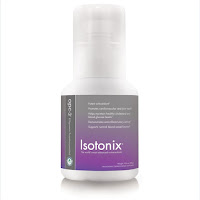You Can Undo the Ill Effects of Statin Drugs
 As many of you know, I firmly believe that the only people who should be taking cholesterol lowering statin drugs—such as Zocor, Lipitor, or the many others—are men over 50 who have coronary artery disease. For everyone else, statins may actually be raising the incidence of heart failure because they deplete the body of CoQ10, a biochemical that’s critical to heart health.
As many of you know, I firmly believe that the only people who should be taking cholesterol lowering statin drugs—such as Zocor, Lipitor, or the many others—are men over 50 who have coronary artery disease. For everyone else, statins may actually be raising the incidence of heart failure because they deplete the body of CoQ10, a biochemical that’s critical to heart health.
But that said, many doctors prescribe statins every day, and many people suffer their unwanted side-effects—including muscle pain and weakness, generalized soreness, memory loss, and peripheral neuropathy.
The good news is you can turn these ill effects around, here’s how:
1. Consider getting off your statin medication, unless you’re a middle-aged man with heart disease. For more of my information and guidance on cholesterol and statin drugs, you can visit my Cholesterol Health Center. But remember to always contact your physician before stopping your statin drugs.
2. Rebuild your muscles, and your heart with four nutrients I call the “awesome foursome.” You want to take 200 mg of coenzyme Q10 (CoQ10), 200-600 mg of magnesium, and 2-3 grams of broad spectrum carnitine daily. Plus, you want to take 5 grams of D-Ribose two to three times a day.
3. If you’re suffering from polyneuropathy, which is nerve damage that affects the feet and hands causing weakness, loss of sensation, or burning pain, I recommend taking 100-300 mg of alpha lipoic acid a day.
Finally, be very optimistic. I’ve seen this regimen work again and again over the years. Once you allow the statin drugs to clear from your system, and build up the mitochondrial function in your cells with the awesome foursome, you will not only feel better—you’ll thrive!
2. Rebuild your muscles, and your heart with four nutrients I call the “awesome foursome.” You want to take 200 mg of coenzyme Q10 (CoQ10), 200-600 mg of magnesium, and 2-3 grams of broad spectrum carnitine daily. Plus, you want to take 5 grams of D-Ribose two to three times a day.
3. If you’re suffering from polyneuropathy, which is nerve damage that affects the feet and hands causing weakness, loss of sensation, or burning pain, I recommend taking 100-300 mg of alpha lipoic acid a day.
Finally, be very optimistic. I’ve seen this regimen work again and again over the years. Once you allow the statin drugs to clear from your system, and build up the mitochondrial function in your cells with the awesome foursome, you will not only feel better—you’ll thrive!


